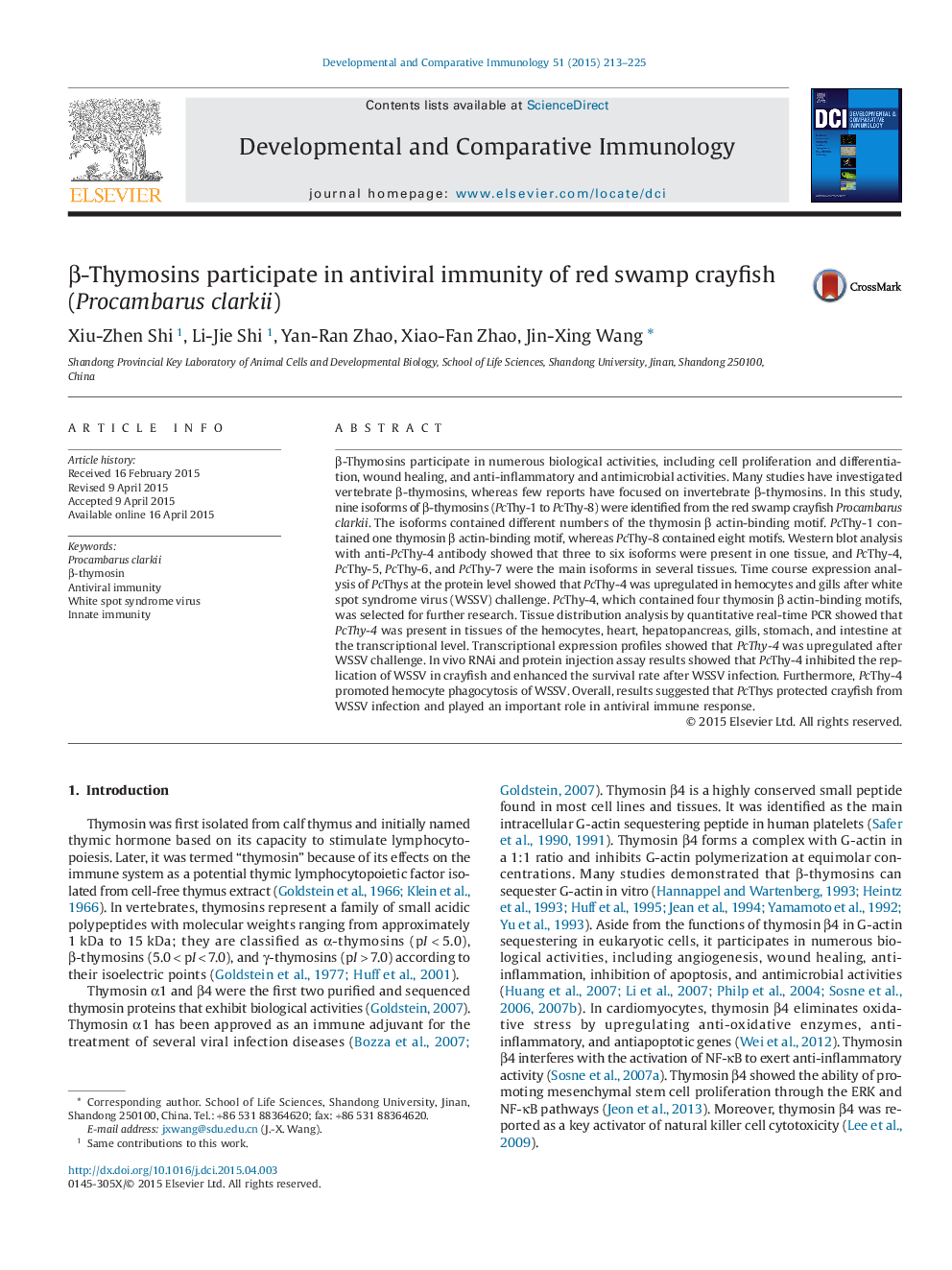| Article ID | Journal | Published Year | Pages | File Type |
|---|---|---|---|---|
| 2428903 | Developmental & Comparative Immunology | 2015 | 13 Pages |
•Nine isoforms of β-thymosins were identified from crayfish Procambarus clarkii.•Three to six isoforms of β-thymosins were detected in one tissue.•PcThy-4 was upregulated in the crayfish challenged by WSSV.•PcThy-4 promotes hemocyte phagocytosis of WSSV.•PcThy-4 inhibits WSSV replication and increases the survival rate of WSSV-infected crayfish.
β-Thymosins participate in numerous biological activities, including cell proliferation and differentiation, wound healing, and anti-inflammatory and antimicrobial activities. Many studies have investigated vertebrate β-thymosins, whereas few reports have focused on invertebrate β-thymosins. In this study, nine isoforms of β-thymosins (PcThy-1 to PcThy-8) were identified from the red swamp crayfish Procambarus clarkii. The isoforms contained different numbers of the thymosin β actin-binding motif. PcThy-1 contained one thymosin β actin-binding motif, whereas PcThy-8 contained eight motifs. Western blot analysis with anti-PcThy-4 antibody showed that three to six isoforms were present in one tissue, and PcThy-4, PcThy-5, PcThy-6, and PcThy-7 were the main isoforms in several tissues. Time course expression analysis of PcThys at the protein level showed that PcThy-4 was upregulated in hemocytes and gills after white spot syndrome virus (WSSV) challenge. PcThy-4, which contained four thymosin β actin-binding motifs, was selected for further research. Tissue distribution analysis by quantitative real-time PCR showed that PcThy-4 was present in tissues of the hemocytes, heart, hepatopancreas, gills, stomach, and intestine at the transcriptional level. Transcriptional expression profiles showed that PcThy-4 was upregulated after WSSV challenge. In vivo RNAi and protein injection assay results showed that PcThy-4 inhibited the replication of WSSV in crayfish and enhanced the survival rate after WSSV infection. Furthermore, PcThy-4 promoted hemocyte phagocytosis of WSSV. Overall, results suggested that PcThys protected crayfish from WSSV infection and played an important role in antiviral immune response.
